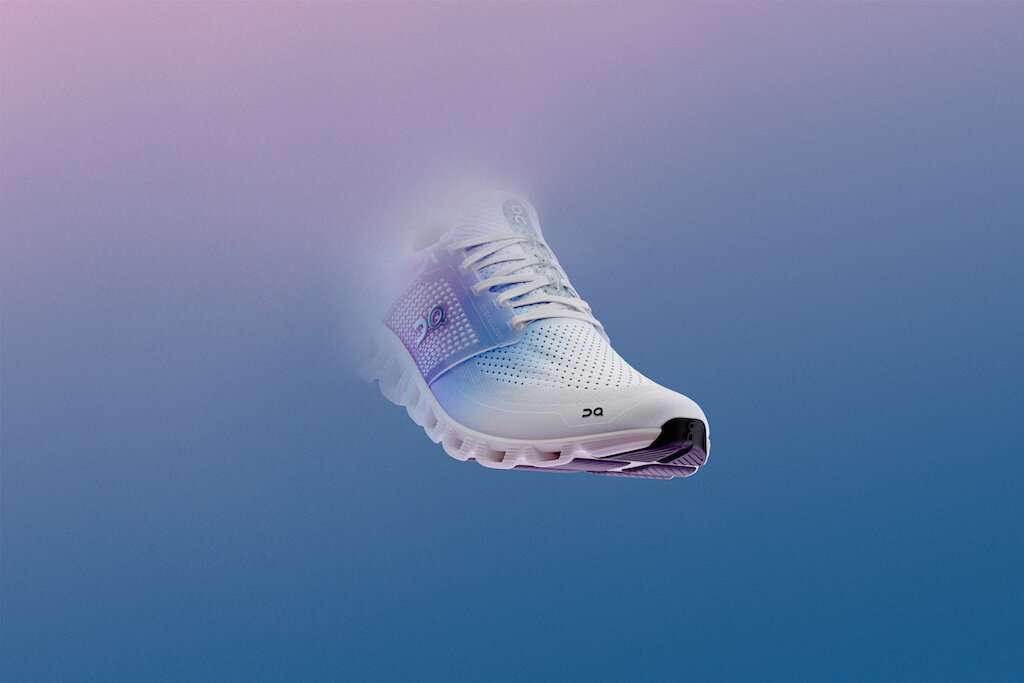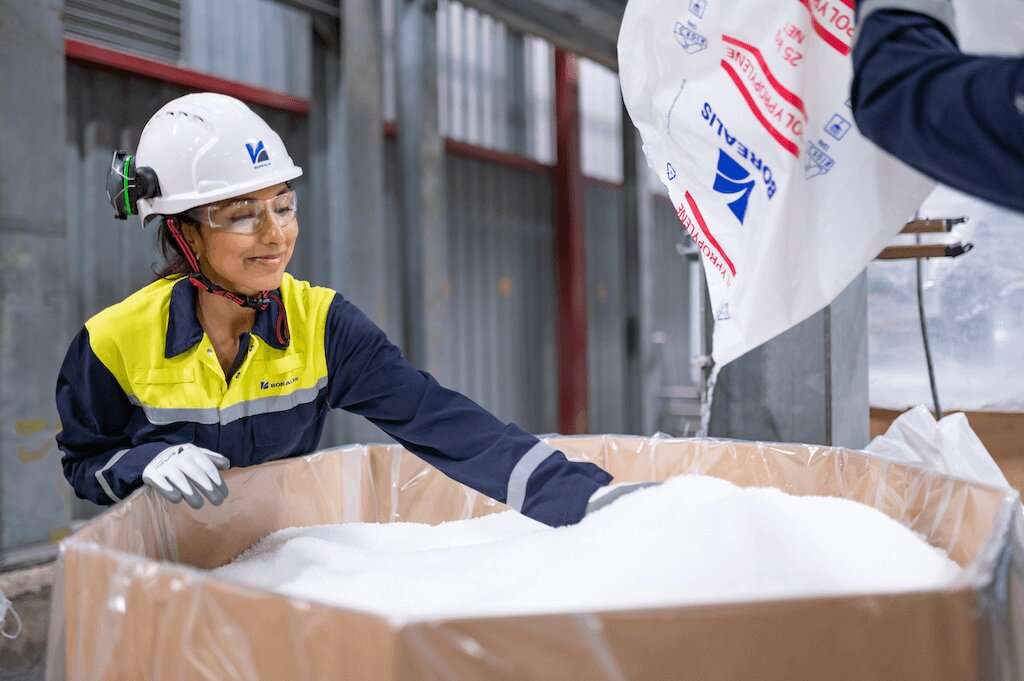Cloudprime, the new shoe from Swiss footwear company On, is the world’s first to feature materials made from captured carbon emissions.
With the goal of becoming a fully fossil-free and circular footwear company, On is one step closer with the launch of Cloudprime, a prototype shoe it hopes to bring to market in the near future. The new sustainable shoe’s midsole is made from CleanCloud EVA foam—a carbon-captured ethylene vinyl acetate. It’s part of the brand’s mission to take back the majority of its products by the end of the decade and replace them with sustainable options.
The Swiss Alps-based company has been on a mission to revolutionize the running industry while also growing the circular economy. Like the mission-driven outdoor company Patagonia, which handed over ownership of the company to a trust focused on protecting the planet yesterday, On’s focus has also worked in changing the narrative about purpose-driven companies. On has a global fanbase and a valuation of more than $5.5 billion—up three times from its $2 billion valuation in 2019.

With its new shoe, On steps into an emerging category that turns a big problem—atmospheric carbon—into a viable and potentially highly profitable solution. Leading climate experts and science organizations have been sounding the alarm on carbon emissions for decades. The Intergovernmental Panel on Climate Change has cited carbon capture as central to climate change mitigation pathways. But it has lagged behind other areas including carbon credits and offsets, and displacing carbon with electric vehicles, sustainable aviation fuel, and plant-based or cell-based alternatives to animal agriculture.
Unlocking the potential
“Holding the first-ever shoe made of carbon emissions in my hands is a huge milestone—not only for On, but for the whole sports industry”, Caspar Coppetti, Co-Founder and Executive Co-Chairman of On, said in a statement. “Five years ago, this was barely a dream. Imagine what can happen in the future as we unlock the potential of alternative carbon sources with further research and in collaboration with the best partners.”
On says it took a collaborative approach on the five-year shoe development and partnered with leaders in the space including LanzaTech, Borealis, and Technip Energies. The companies are experts in biochemicals, processes, and material innovations.
The carbon is captured by Illinois-based LanzaTech, which traps it from industrial processes before it can be released into the atmosphere. The captured CO2 is then fermented and turned into ethanol, which is then dehydrated by Technip Energies and turned into ethylene. From there, Borealis polymerizes it, turning it into EVA pellets that On transforms into the proprietary performance foam for its shoes.

Captured carbon has appeared in a small handful of other products recently. LanzaTech notably partnered with Zara on a limited-edition cocktail dress last year and is working with Lululemon on materials for its athleisure and yoga wear. It also partnered with Coty to develop a carbon-captured base for its perfumes.
LanzaTech’s first two commercial-scale gas fermentation plants have already produced more than 50 million gallons of ethanol—the equivalent of offsetting the release of 190,000 metric tons of CO2 from the atmosphere. The company has additional plants in the works.
Pollution conversion
“Today we continue our journey to show the world that recycled carbon is a resource rather than a liability,” said Jennifer Holmgren, CEO of LanzaTech. “As we increasingly convert pollution into the products we use in our daily lives, we will reduce the need to extract more carbon from the ground! The partnership between On, Borealis, Technip, and LanzaTech will change how the world thinks about sourcing carbon, enabling us to bend the carbon curve, keep our skies blue, and create a sustainable future for all.”
Technip Energies used its ethanol-to-ethylene Hummingbird technology to help develop the shoe, a move Bhaskar Patel, SVP Sustainable Fuels, Chemicals & Circularity at Technip Energies, says is “one step to a more sustainable future.”
Borealis says the partnership underscores its commitment to a net-zero future.
“With our creative partners On, LanzaTech, and Technip Energies we are proud to co-create circularity in carbon, and decouple plastic from its reliance on fossil-based resources,” said Lucrèce Foufopoulos, Borealis Executive Vice President Polyolefins, Circularity and Innovation & Technology. “Through innovation and collaboration, we continue re-inventing essentials for sustainable living.”

On is also bringing the first post-consumer plastic waste to the CleanCloud outsole. It says it’s also collaborating with French start-up Fairbrics to create a polyester-based textile made from carbon emissions.
Direct air capture
On’s announcement comes on the heels of news out of CarbonCapture’s Los Angeles headquarters last week. The climate tech company announced its exclusive partnership with Frontier Carbon Solutions to remove five million tons of atmospheric CO2 annually by 2030 beginning next year. It will bring its technology to Wyoming’s prairie land, selected because of the wide availability of renewable and zero-carbon energy sources in the state.
The proprietary direct air capture (DAC) project, dubbed Bison, will be the country’s first atmospheric carbon removal facility to use Class VI wells for permanent storage. It will also be the first scalable DAC project on U.S. soil.

Carbon sequestration is an industry that CarbonCapture says needs to be as big as the fossil fuel industry. Downstream markets for products made from captured carbon—similar to those made from virgin fossil fuels—play a key role in scaling the technology. The global carbon capture and storage market size was valued at more than $2.7 billion last year and is estimated to reach more than $8 billion by 2030.
“With the passage of the Inflation Reduction Act, the proliferation of companies seeking high-quality carbon removal credits, and a disruptive low-cost technology, we now have the ingredients needed to scale DAC to megaton levels by the end of this decade,” Adrian Corless, CEO and CTO, CarbonCapture Inc., said in a statement. Corless says the goal is to offer the lowest-priced DAC-based carbon removal credits in the market.
Like CarbonCapture, On’s goal is to make its CleanCloud technology as widely available as possible, says Coppetti. “We believe that On can be an agent for positive change through enabling and accelerating the scale-up of sustainable technologies such as CleanCloud.”
Learn more about the new shoes at the On website.


